The Big Disconnect: Google Fiber’s Unfulfilled Promise In Atlanta
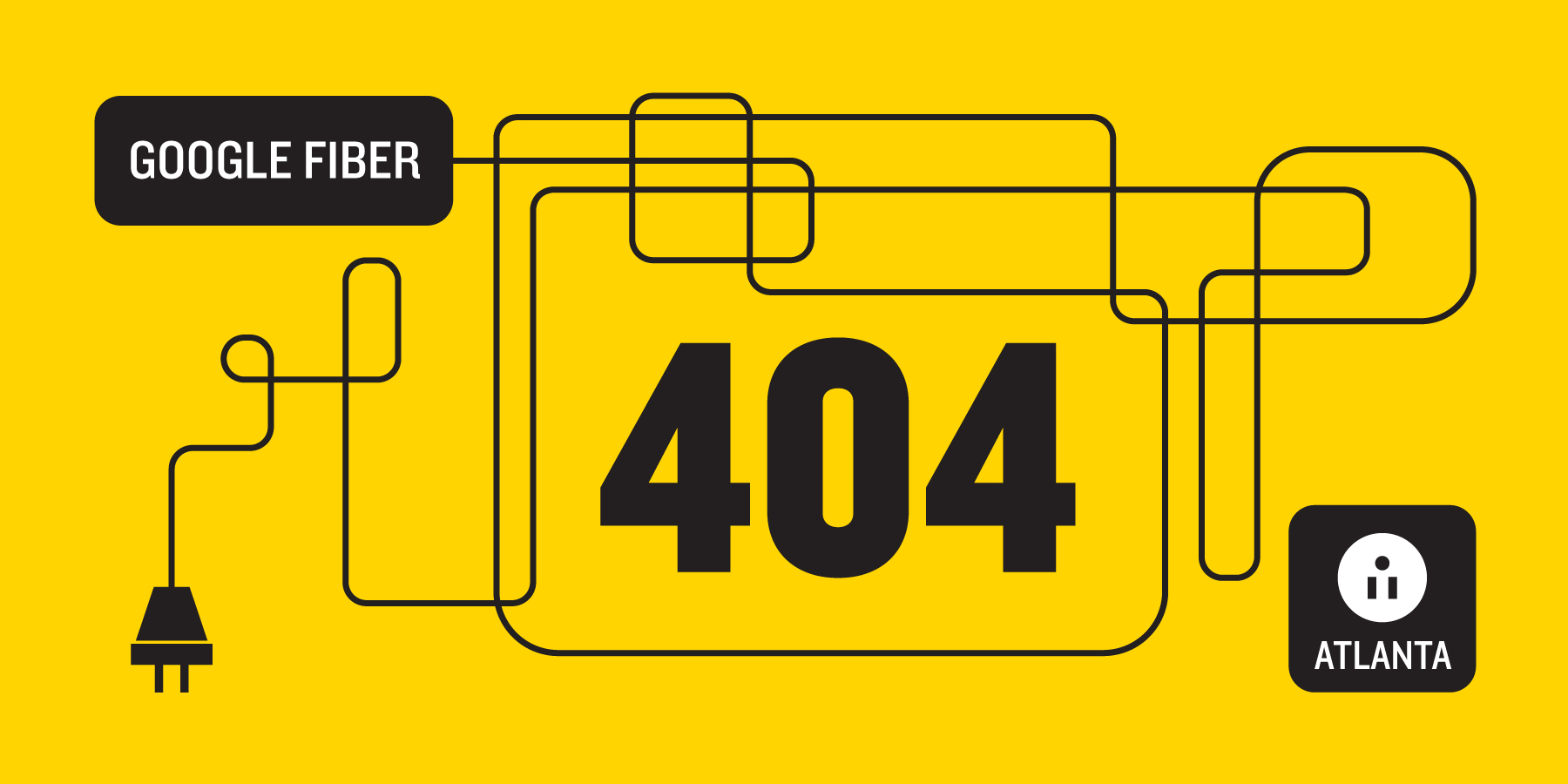
Ankita Ackroyd-Isales / WABE
Listen to part two of the radio story under ‘The Trouble With Digital Inclusion’ below.
It’s been more than three years since the Google Fiber frenzy took hold of the Atlanta area.
From Alpharetta to Avondale Estates, Sandy Springs to Sdmyrna, folks fed up with chronically unreliable internet connections, abysmal customer service and expensive monthly bills lapped up Google Fiber’s promise.
And there was an altruistic component, too: Google Fiber would help close the digital divide in part by extending discounted or free high-speed internet to low-income residents.
Beyond the activity some residents saw at the street level, plenty of action was taking place behind the scenes. Engineers mapped out nearly every mile of fiber — enough to get to Iceland, according to Google.
The backbone of the system is a miles-long ring of fiber circling the city. From the ring, glass optical lines branch off and feed into “fiber huts,” structures about the size of a one-car garage. Within Atlanta’s city limits, Google installed a dozen of the prefab units between mid-2015 and early 2016 at a cost of about $150,000 to upwards of $250,000 each. When all was said and done, the company had dropped more than 20 of the huts around metro Atlanta.
Once inside the hut, Google’s fiber optic cables snake through rows of switches, amplifiers and other equipment before embarking on the last mile or so to customers’ homes. One hut can supply gigabit internet speeds to 20,000 or 30,000 homes.
It’s that last mile that has proven to be the trickiest and the most expensive mile of the overall build-out. (Google Fiber has not disclosed the total cost of the Atlanta project, but its first fiber foray, in the Kansas City region, is believed to have carried a billion-dollar price tag.)
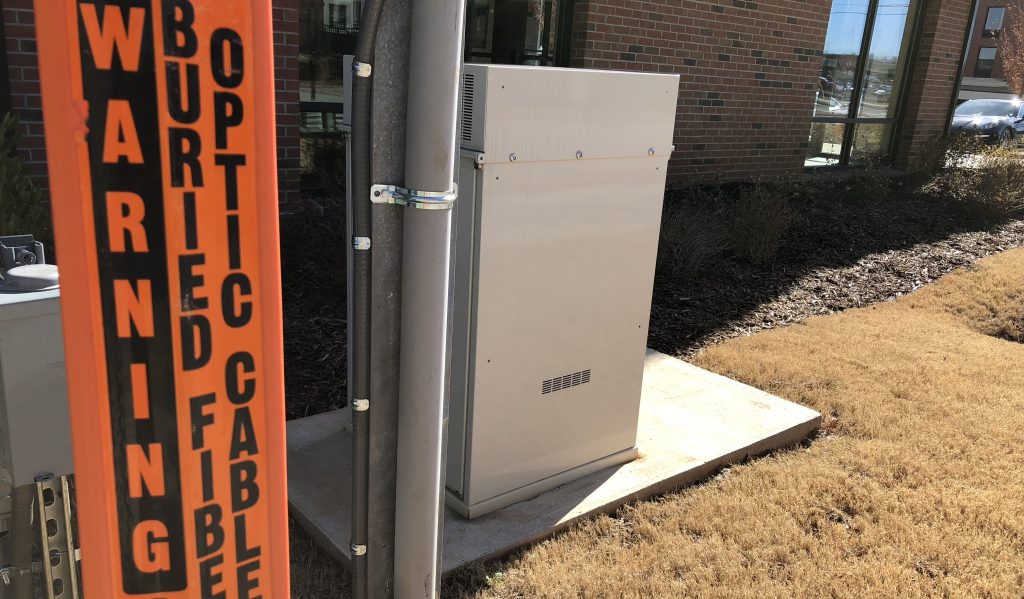
Google has released little public information about the Atlanta rollout delays, and company officials declined WABE’s multiple requests for an interview on the status of the project and other specifics. But it’s possible that, in the time it has taken Google Fiber to figure out how to travel the last mile to people’s homes, fiber optic technology may no longer be the best way to get there.
Atlanta isn’t the only city to see Google Fiber falter. In Nashville, big telecom operators sued and all but blocked Google Fiber from tapping half of the city’s 88,000 utility poles — essential for completing the backbone of its last-mile delivery. Nearly four years after the company announced it was coming to Nashville, Google Fiber finally reached 10 Nashville neighborhoods late last year.
Google Fiber didn’t face as many obstacles here, although its Atlanta build-out has been anything but a textbook case. One thing is indisputable: most who were once gaga over Google are now fed up with its failed fiber promise.
The Early Days
If smiling politicians were a barometer, the January 2015 press conference to trumpet Google Fiber’s selection of Atlanta as its next fiber city could’ve been the region’s biggest announcement since the city landed the 1996 Olympics.
The mayors of Avondale Estates, Brookhaven, College Park, East Point, Hapeville and Smyrna— cities that, along with Decatur and Sandy Springs, also would be connected to Google Fiber — glowed as then-Atlanta Mayor Kasim Reed spoke on their behalf.
“Abundant high-speed broadband access will make our economy stronger and make our community stronger,” Reed gushed.
As Google Fiber’s director of marketing, Scott Levitan, told the crowd: “Google Fiber will help put Atlanta on par with the fastest cities in the world like Seoul, Tokyo and Zurich.”
“Today is one of the most important moments in the life of the Atlanta metropolitan region.”
Atlanta Mayor Kasim Reed announcing Google Fiber was coming to the metro area in January 2015
He portended hundreds of trucks descending on Atlanta streets, advising it “will take a while before everyone’s neighborhood is served.” He added the process could last a “couple of years.” But no matter the timeline, Levitan assured, “We’ll do our best to keep you informed along the way.”
Initially, a two-year timeframe looked reasonable. By that summer, crews laying fiber-optic cable were busy demolishing sidewalks and closing streets to traffic — and, in the process, infuriating commuters and residents alike.
Google Fiber’s contractors also faced allegations of carelessness after repeatedly damaging underground infrastructure. Georgia’s Public Service Commission stepped in to investigate after a Google Fiber contractor, S&N Communications, ruptured utility lines three dozen times. A decision on whether to fine the company up to $10,000 per violation is expected in June.
Wired And Waiting
“Up here on the ceiling,” Midtown resident Jeffrey Welch says as he points at the crown molding of his second-floor condo near Piedmont Park, “there’s a [nearly] invisible cable.”
You’d need to squint to see it, but there it was: fiber-optic cable, made of one sliver of glass about the diameter of a human hair.
Unlike most Atlantans, Welch has Google Fiber.
Kind of.
The wiring is there, but more than a year after Google technicians installed it— at a cost of $13,000 to the condo association for paying someone to oversee the crews as they worked in each of the 69 units, according to Welch — Google Fiber had yet to throw the switch.
GOOGLE FIBER SERVICE AND HOUSEHOLD INCOME
Despite Google Fiber’s promise that it’s for all of Atlanta, FCC data show the company concentrates* its service in more affluent areas. In Fulton and DeKalb Counties, just six of the census blocks where Google Fiber reported customers were in census tracts with average incomes less than $35,649 per household.
*Note: data are self-reported by service providers and are from December 2016, the latest made available by the FCC.
Credit: Geoff Hing, APM Reports
It’s not because Atlanta has been unwelcoming. Municipalities across the metro area have made concessions to pave the way for Google Fiber, banking on the unquestioned benefits of being associated with the company’s good name.
“It does come with a certain cachet,” College Park City Manager Terrence Moore said of the gigabit-speed service. “Frankly, it’s a benefit to us because we have the opportunity to market ourselves as a Google Fiber community.”
Moore said College Park officials sliced through much of the typical bureaucratic red tape inherent with applying for a city permit. That allowed Google Fiber to ramp up its planning and design phase and quickly begin construction, according to city officials.
“We’ve done everything humanly and organizationally possible to support Google Fiber in an effort to bring their products to the community,” Moore said.
By the end of January 2018, Google Fiber had met the city’s requirements for expanding into the northern sections of College Park, according to William Moore, head of engineering for the city. He says just a few small steps remained before workers could begin deploying fiber and connecting customers. Google Fiber representatives needed only to sign an application and write a $250 check for each of the four required permits.
Easy enough.
But Google Fiber’s people never stopped by city hall to finish the process.
The continued, unexplained delays bother Michelle Suzette Jones, who never thought three years ago when she signed up for the service that she’d still be waiting for a Google Fiber truck to drop by.
Jones says she’s seen it all before.
“We get the short end of the stick here, so maybe it’s ingrained in me to be suspect,” Jones says of living in College Park. “When something says it’s coming down this way and then it suddenly doesn’t, [I have] to wonder, is it because [College Park is] browner? It’s poorer?”
Google Fiber hasn’t completely abandoned College Park. It does provide gigabit speeds to one address. The lone address also happens to be the most expensive rental option inside the city line. It’s called The Pad on Harvard, and the year-old, $41 million development is the first new residential building of its kind in College Park in more than 40 years.
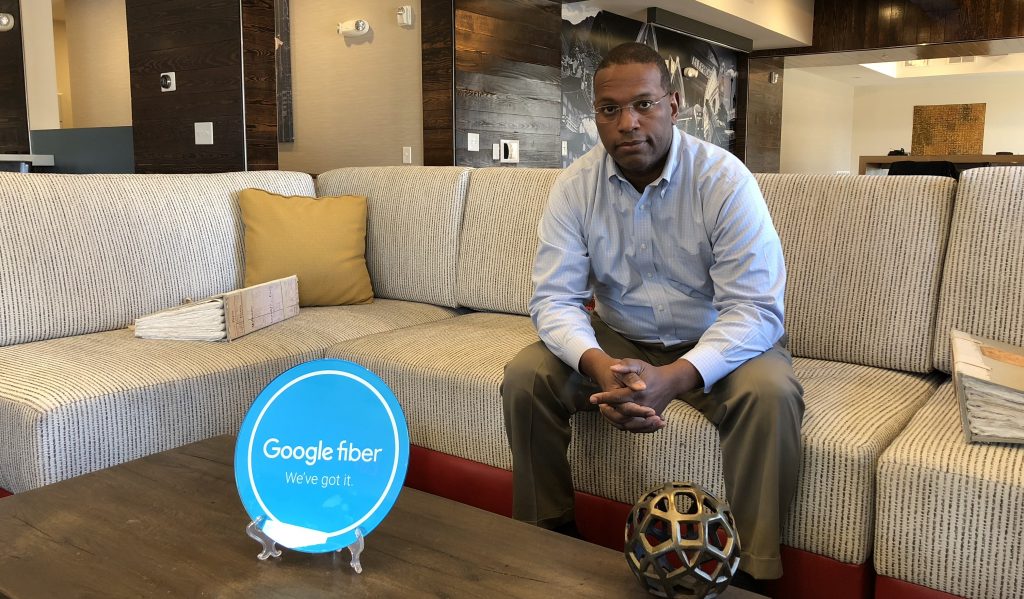
“I fixed the coffee machine for you!” Rod Mullice calls out in a raised voice as he shows me around the Pad’s clubhouse. A grateful resident acknowledges the gesture.
Mullice led the development of The Pad on Harvard, aided by his background in transit-oriented construction projects. It’s because of that background he knew of thousands of miles of surplus, unused fiber-optic lines — known as dark fiber — running parallel to MARTA’s railways. Given The Pad’s proximity to MARTA’s College Park transit station, he had a hunch he could convince Google Fiber to tap into MARTA’s dark fiber, light it up and, in the process, link The Pad’s 109 apartments with gigabit internet speeds.
“I pursued them aggressively,” Mullice says of lobbying Google Fiber. “Aggressively.”
It worked.
Mullice says The Pad’s residents have had nothing but positive experiences with Google Fiber, but he still questions how the company has handled its commitment to the area.
“It doesn’t give me great joy,” he says of the fact his project is the only building with Google Fiber in town. “I want everybody to have it.”
The Trouble With Digital Inclusion
In the Kansas City region; Austin, Texas; and Provo, Utah, Google Fiber did something almost too good to be true. It handed out free internet (for up to seven years) to anyone willing to pay a one-time installation fee of $300. Sure, the gratis package was one-200th the speed of Google Fiber’s drool-inducing gigabit plan. But free is free.
By the time Google Fiber put out its shingle in Atlanta, it had dropped the on-the-house option in favor of a $50 (and much faster) monthly plan. But the company still planned to offer limited low- or no-cost service to certain residents. At least that’s how Terrence Moore, College Park’s city manager, says he understands it — although he admits Google Fiber has offered few details
“I think when Google Fiber made those offers of having free monthly service, they probably were sincere,” says Georgia State University economist Bruce Seaman.
He says Google Fiber’s speedy service alone wouldn’t completely bridge Atlanta’s digital divide, no matter how many homes it wired. And despite missteps, Seaman says no one should be quick to single Google Fiber out.
“It’s hard to uniquely criticize Google Fiber when, of course, it is the broader issue for all providers.”
Although no longer universally available to any customer who wants it, there was still reason to believe early on that Google Fiber planned to bring free, high-speed internet access to at least some residents — like an Obama-era program known as ConnectHome, which used Atlanta as a pilot city.
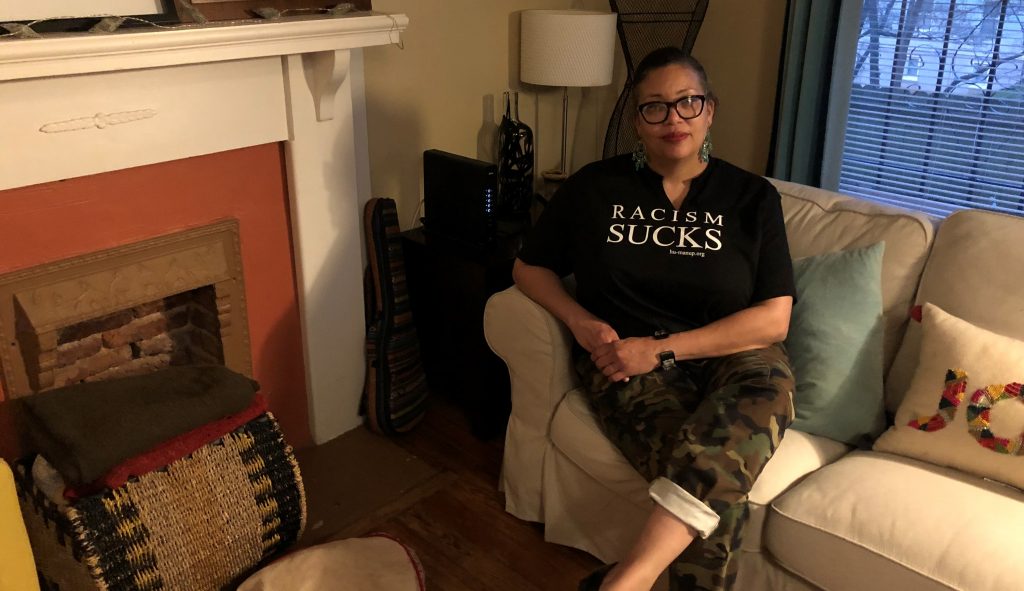
Under the program, families living in subsidized housing in select cities got a free tablet computer and free high-speed internet. In Atlanta, Google Fiber was supposed to provide that service. When it couldn’t, cellular provider T-Mobile stepped in, but with speeds only a fraction of what Google Fiber had promised.
Also, in the summer of 2015, Google Fiber representatives approached the Atlanta Housing Authority with a nearly too-good-to-be-true proposition: allow Google Fiber to hook up the 282 apartments at AHA’s Cosby Spear Highrise in the Old Fourth Ward and, for the next decade, neither residents nor the AHA would pay a penny for access.
There were a few strings attached, however.
In exchange for wiring the towers, Google Fiber wanted what AHA read as an exclusive, 10-year license to install, operate and maintain fiber-optic equipment at Cosby Spear, according to documents obtained by WABE under the Georgia Open Records Act. (Later, Google Fiber broadened the request to include AHA’s Martin Street Plaza and Westminster Apartments properties, which would get free service for four years, not 10.) Google also wanted AHA’s permission to market its products — both free broadband internet and not-so-free television — to residents.
The idea of exclusivity raised some eyebrows at the housing authority.
AHA officials stood firm that Google Fiber “needs to have non exclusive rights to allow access to other carriers,” according to a March 2016 internal memo.
“Google’s response tells me that they are not really taking our concerns seriously.”
AHA attorney Lou Cataland in an email to the Atlanta Housing Authority’s upper management
And then there was the timeline. Google Fiber wanted up to three years from the date of a signed contract to flip the fiber switch and begin providing residents with service. The housing authority wanted to limit the wait to one year. But perhaps the biggest stalemate came over what would happen if the Atlanta Housing Authority transferred ownership of the towers. Google Fiber wanted a clause in the contract that would require the new owners to abide by the existing terms of the agreement.
When the AHA pushed back, Google Fiber refused to budge.
“Google’s response tells me that they are not really taking our concerns seriously,” wrote AHA attorney Lou Cataland in an email to the housing authority’s upper management. “Given the vast differences between our positions, going back and forth with red lines will likely be a waste of time.”
After about a year of back-and-forth, the deal soured.
The housing authority declined WABE’s interview requests, but did allow access to Cosby Spear’s residents. That includes 65-year-old De’Loris Garrott, who frequents one of Cosby Spear’s two computer labs because she doesn’t have internet access in her apartment. Garrott knew of Google Fiber and says she even called to inquire about getting service. She was unaware, however, that her landlord and Google Fiber had been in talks to provide free internet to residents.
“Obviously you’ve heard something we haven’t heard.”
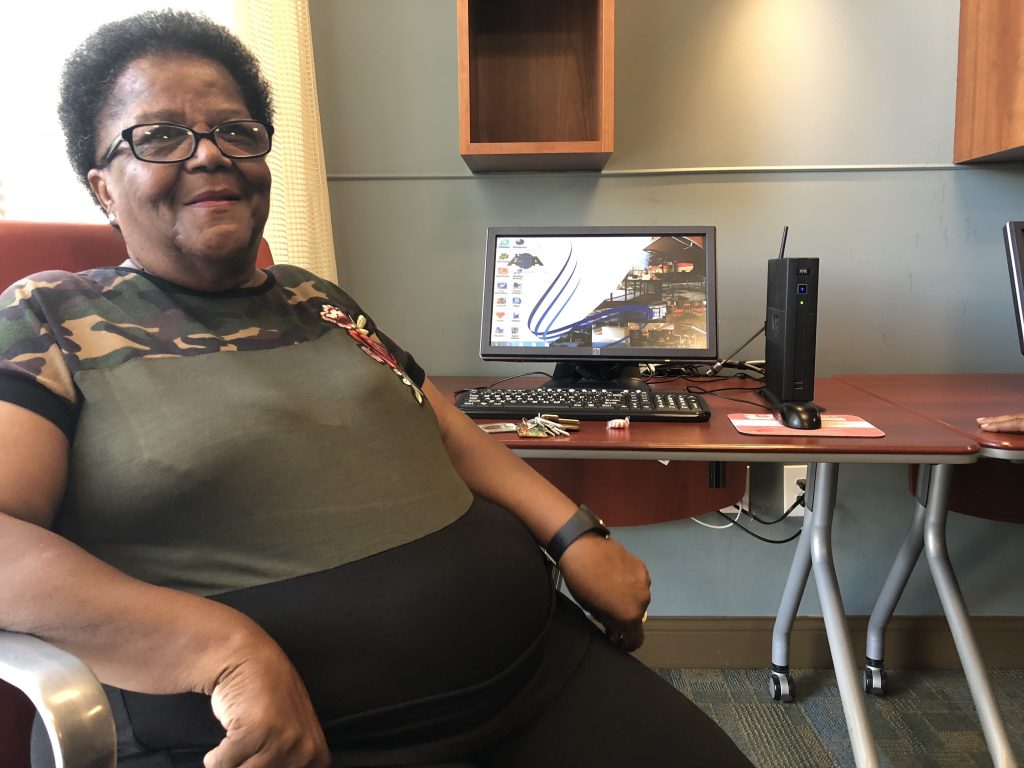
Garrott’s friend and neighbor, 72-year-old Linda King, was also in the dark about the back-and-forth between the authority and Google Fiber. King says she used to have internet in her unit, but had to cancel it because she couldn’t afford Comcast’s $160 monthly bill. She wants the internet back, so King says she’ll be patient with Google Fiber. “I’ll be glad when they get here,” she laughs. “I’m ready.”
The negotiations were never made public. In fact, Google Fiber requires organizations sign a nondisclosure agreement before discussing partnerships.
Unchecked Power
Greg Fender had a hunch that was the case. Fender knows most Georgia mayors and city managers on a first-name basis and says he gets calls from them weekly, if not daily. As a Georgia Municipal Association contractor who helps cities with cable and telecommunications issues and agreements, Fender offers these local officials — free of charge — advice on how to negotiate often hefty fees from private companies seeking to use public rights of way.
When it became clear that Atlanta and a handful of surrounding cities were likely going to be the next Google Fiber recipients, Fender expected he’d soon be looking over contracts and advising local officials about what came next. That’s because all of Google Fiber’s distribution huts are in public parks or other public rights of way.
But no one sought him out.
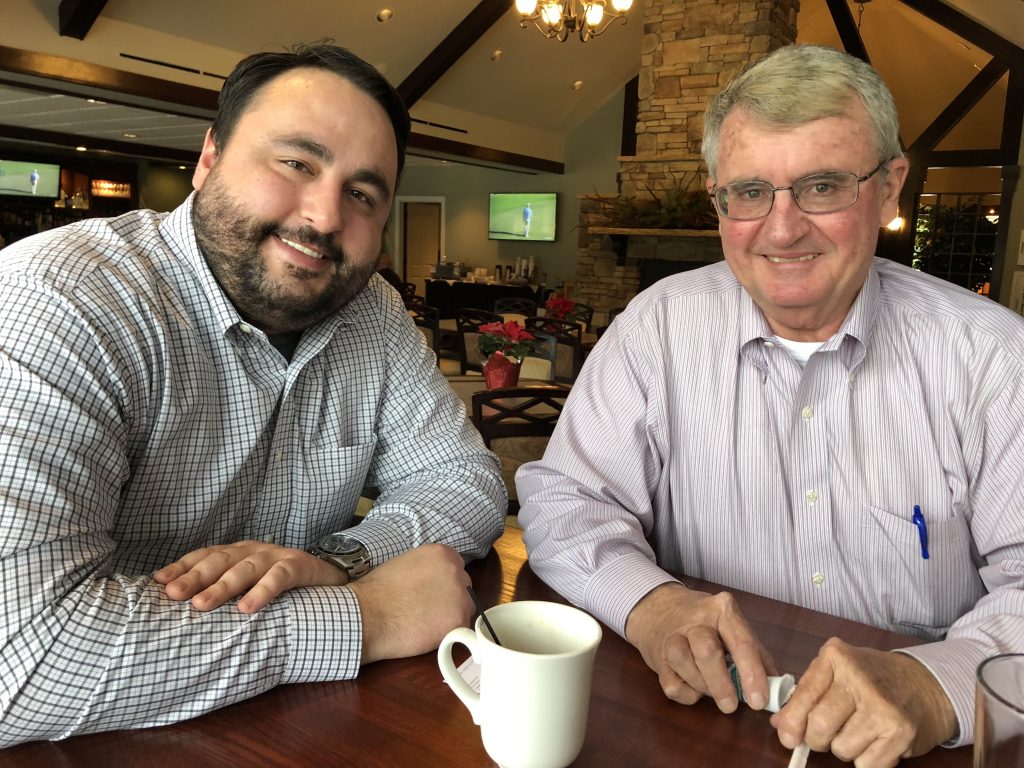
Fender wondered if city officials might be so excited about Google Fiber that they didn’t want to rock the boat. He also wondered if Google Fiber might have used its familiar name and brand power to convince officials to stay mum.
To move forward with discussions “concerning existing or future product development efforts,” Google Fiber required one local government agency to sign a confidentiality statement that silenced it for three years.
Asked about the nondisclosure agreements, Google Fiber spokesperson Sunny Gettinger responded via email, “When we first start working with cities and partners, we do often enter into NDAs with them simply because of the amount of confidential and competitively sensitive information we share, especially in the early days of the project.”
Fender points to another high-profile company that’s using what he’s coined “the Google model” of doing business: Amazon. The retail behemoth’s strategy for choosing a location for its coveted second headquarters relies on city leaders offering up the best incentives — including softening regulations and easing protocol.
“I caution cities against doing that,” says Fender, adding that playing by those rules puts almost unchecked power in the hands of the private company, often at the expense of the city.
Google Fiber’s Loss = Google’s Gain
Google Fiber has never given a definitive answer as to when it will complete its Atlanta rollout. A review of hundreds of emails, internal memos and other correspondence shows Google Fiber was careful not to make such promises —even to top officials, and even as it expanded to new cities across the nation.
“We continue to see Fiber as a huge market opportunity,” says Ruth Porat, the CFO of Google Fiber’s parent company, Alphabet Inc., on a call with investors in July 2016. When asked earlier this year about Fiber’s progress, Porat was more circumspect.
“We concluded that we would pause the pace of rollout … so that we could spend time on, ‘How do we really bring technology to bear in a more meaningful way?’” Porat says during a Q&A at the Morgan Stanley Technology Conference in San Francisco in February.
That pace is likely to pick up only when Google Fiber has “something that is substantive enough [in] value to justify accelerating the rollout again,” added Porat.
Analysts believe that “something” likely involves wireless data transmission.
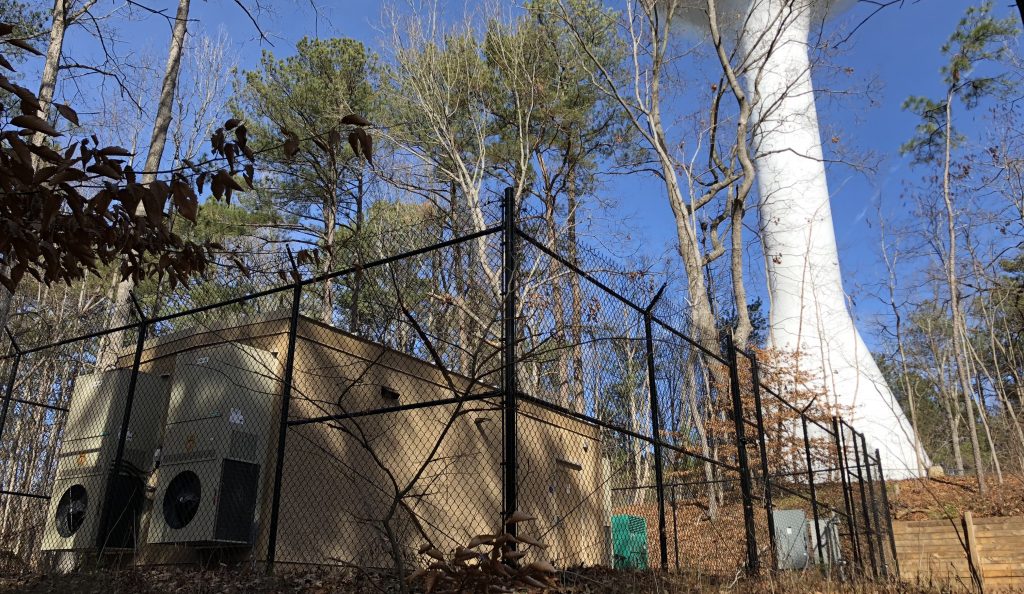
In the past few years, the company has started to look at how it might shed its dependency on fiber-optic cables along the costly and cumbersome “last mile,” potentially bypassing the cables with wireless connections.
In 2016, Google Fiber acquired WebPass, which found success in delivering wireless, high-speed connections to large apartment buildings in major urban areas. In the time that Google Fiber has left Atlanta consumers waiting, Comcast and AT&T — the two dominant broadband providers serving the area— have improved and expanded their networks. That’s one reason why almost nine out of 10 Fulton County households currently are able to access internet speeds of 250 mbps or greater. In fact, Comcast and AT&T now advertise speeds equal to or greater than Google Fiber’s gigabit package.
AT&T’s monthly sticker price is $80, while Comcast charges between $115 and $140 (the latter does offer highly discounted promotional deals, especially if you’re willing to have your data tracked). Google Fiber’s service — where it exists — is cheaper at $70 a month.
And even though its availability lags behind that of its competitors, Google Fiber is, in a way, still benefiting.
Google itself makes most of its money putting ads in front of consumers’ eyes. More bandwidth and faster connections — even when offered by competitors — mean Google can place ads faster and more efficiently.
While Google Fiber hasn’t disrupted the broadband market in any material way, “they have spurred competition and created fiber where there wasn’t going to be any fiber,” says Seth Wallis-Jones, consumer analyst at IHS MarkIt. “So in that respect, they’ve succeeded.”
Still In The Dark
Local governments barely hear a whisper out of Google Fiber these days, according to Ryan Fender.
After being in the dark for months, Smyrna’s leaders got an update last August from Google Fiber, which led former Smyrna Mayor Pro Tem Teri Anulewicz to express disappointment that the process wasn’t moving as quickly as first hoped.
“Google Fiber has assured us they’ll continue to work with us toward the goal of expanding broadband connectivity for more people in Smyrna,” Jennifer Bennett, the city’s community relations director, wrote in an email.
While some Smyrna apartment complexes were in the process of being connected, Bennett says Google Fiber wasn’t planning to build out the network or provide general service to all of Smyrna immediately.
That was 10 months ago. Google Fiber hasn’t provided the city any additional update since then, according to Bennett.
In fact, Google Fiber hasn’t applied for a permit since Thanksgiving, according to a BuildZoom analysis for WABE. The “upcoming events” section of Google Fiber’s Atlanta webpage has gone silent, too. It hasn’t had an entry in months.
Yet, Google Fiber continues to encourage consumers to sign up.
As for its promise to keep Atlanta informed along the way, Google Fiber has this message for folks who are still waiting:
“We appreciate their patience,” the company writes in an emailed statement. “When we have new information, we will provide it so they can take action.”
***
This story is part of an investigative journalism collaboration supported by the Corporation for Public Broadcasting. WABE is working with APM Reports, WNYC in New York, KPCC in Los Angeles and KCUR in Kansas City.









